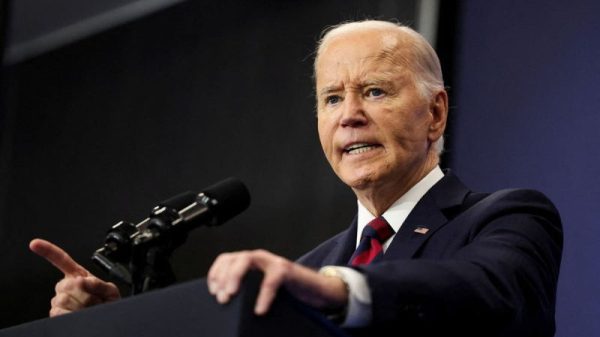The National Health Service (NHS) plays a critical role in the provision of bariatric treatments, addressing obesity, a growing public health challenge in the UK.
While life-changing options like gastric bypasses, gastric sleeves, and gastric balloons are available, access to these procedures remains inconsistent. This discrepancy stems from funding disparities, regional availability, and lengthy waiting times. As the demand for bariatric services rises, ensuring uniform access across the NHS is vital for tackling obesity-related health issues.
The Growing Demand for Bariatric Interventions
Obesity affects one in four adults in the UK, according to NHS statistics. The health implications, ranging from type 2 diabetes and hypertension to cardiovascular disease, place immense strain on healthcare resources. Bariatric procedures have emerged as effective solutions, not only for weight loss but also for limiting comorbid conditions.
However, the Health Service Journal (HSJ) notes that bariatric surgery accounts for less than 1% of eligible patients treated annually under the NHS. While cost is a contributing factor, variations in regional funding priorities and clinical commissioning group (CCG) policies exacerbate the situation. Patients in some areas face greater barriers to access than others, creating a postcode lottery for treatment.
Funding Inequities: The Core Issue
Regional inequalities in funding are among the most significant challenges. CCGs, responsible for allocating NHS budgets, vary in their criteria for approving bariatric procedures for financial support. Some regions require a longer history of failed weight-loss attempts or stricter BMI thresholds before approving surgery.
This inconsistency leaves many patients with no viable solution. Those unable to secure treatment through the NHS often seek private alternatives, adding a financial strain to obesity-related health issues.
Addressing these discrepancies will require a unified approach to funding, supported by national guidelines that establish standard eligibility criteria and equitable resource allocation across all regions.
Standardizing Eligibility Criteria
Eligibility for bariatric procedures under the NHS generally follows National Institute for Health and Care Excellence (NICE) guidelines, which recommend interventions for patients with a BMI of over 40 or over 35 with comorbidities. However, local interpretations of these guidelines often lead to more inconsistencies.
A patient in one CCG may qualify based on their BMI and health conditions, while another in a different region might be denied. Establishing a centralized system for assessing eligibility could eliminate such disparities, ensuring patients receive treatment based on clinical need rather than geographic location.
Moreover, educating primary care providers about referral pathways for bariatric procedures is essential. Many patients report delays in receiving referrals due to insufficient knowledge among GPs about available options and criteria.
Improving Service Delivery Across the Board
One of the key solutions lies in expanding the availability of multidisciplinary teams (MDTs) within bariatric services. Effective MDTs, which include dietitians, psychologists, and surgeons, are essential in providing comprehensive care before and after surgery. Such follow-up guarantees the best treatment for each patient, more adapted and more efficient, saving money and useless procedures. However, not all NHS trusts have the resources to establish fully operational MDTs, which leads back to the funding system of the NHS.
Investing in more bariatric units and ensuring they are evenly distributed across the UK can ease pressure on existing facilities and reduce waiting times. Additionally, integrating digital tools, such as telemedicine consultations and online pre-surgery support programs, can improve access, particularly in rural areas. These methods have been widely promoted since the Covid crisis, but their use could still be widely extended.
The Role of Alternative Treatments
Bariatric surgery, such as gastric bypass or sleeve gastrectomy, is effective but not always accessible. Alternative treatments are increasingly vital to support patients who don’t qualify for surgery or seek less invasive options.
Non-surgical gastric balloons have emerged in recent years as an effective option for patients who cannot or don’t want to undergo bariatric surgery. The balloon is temporarily placed in the stomach endoscopically to create a feeling of fullness and favor weight loss. This approach requires a reduced recovery time and can help patients adopt healthier habits. Another alternative is medically supervised weight management, combining tailored diets, exercise plans, and weight-loss medications to address obesity without surgery.
Other emerging solutions like endoscopic sleeve gastroplasty (ESG) also offer minimally invasive procedures that reduce stomach size without major surgery, providing significant results with fewer risks as well.
For those comparing options, understanding differences is key. You’ll find online several websites comparing gastric balloons and gastric sleeves or other procedures, though only your doctor will be able to identify the best procedure for your case.
By embracing these alternatives, the NHS can broaden access to treatment, ease surgical backlogs, and offer more personalized care for patients, making bariatric services more consistent across the UK.
Training and Retaining Bariatric Specialists
A robust bariatric service hinges on having sufficient healthcare professionals trained in obesity management and bariatric surgery. However, recruitment and retention challenges in the NHS have impacted the availability of specialists. Surgeons, anesthetists, and support staff require specific training to handle the complexities of these procedures, yet workforce shortages often lead to delays and cancellations.
By increasing investment in training programs and offering competitive incentives, the NHS can address the staffing gap. Initiatives such as mentorship schemes for junior doctors interested in bariatric surgery could also ensure a steady pipeline of skilled professionals.
Tackling Waiting Times
Lengthy waiting times for bariatric procedures remain a significant barrier. According to recent reports, some patients wait over two years for surgery, far exceeding the NHS constitution’s 18-week target. This delay not only affects physical health but also takes a toll on mental well-being.
Streamlining patient pathways and adopting innovative scheduling systems can significantly reduce waiting times. For instance, the introduction of centralized booking platforms, coupled with real-time data monitoring, could help optimize surgical schedules and minimize backlogs.
A Holistic Approach to Obesity
Finally, consistency in bariatric services requires the NHS to adopt a more holistic approach to obesity management. This means addressing the root causes of obesity through education, prevention, and early intervention. Public health campaigns promoting healthier lifestyles, combined with access to nutritionists and exercise programs, can reduce the overall demand for bariatric treatments over time.
Moreover, expanding partnerships with private providers to offer subsidized procedures could alleviate some of the strain on NHS services.
Ensuring a consistent bariatric service across the NHS is no small task. It requires tackling funding disparities, standardizing eligibility criteria, and investing in infrastructure and workforce development. By addressing these challenges, the NHS can provide equitable access to life-changing treatments for patients nationwide.
With obesity rates continuing to climb, the stakes have never been higher. Delivering a uniform bariatric service isn’t just about weight loss, it’s about saving lives and reducing the long-term burden on healthcare resources.
Read more:
How the NHS Can Offer a Consistent Bariatric Service





























